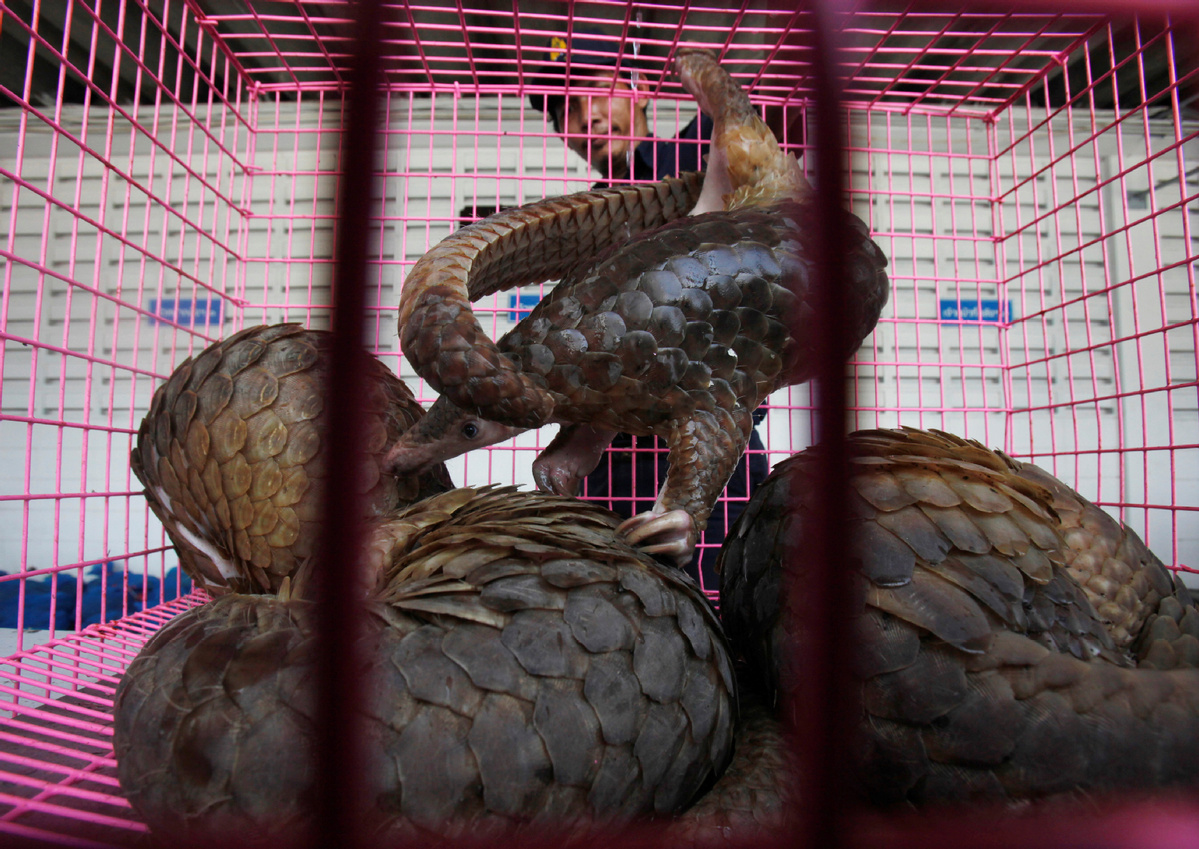Questions raised over role of pangolins
By KARL WILSON in Sydney | CHINA DAILY | Updated: 2020-05-18 11:29

Pangolins may not be the intermediate host of COVID-19, according to a study just published.
The scaly anteaters are natural hosts of coronaviruses but are unlikely to be the direct source of the recent outbreak in humans, the peer-reviewed study 'Are pangolins the intermediate host of the 2019 novel coronavirus (SARS-CoV-2)?' said.
The study, published in the scientific journal PLOS Pathogens on Thursday, was led by Dr Chen Jinping of the Guangdong Institute of Applied Biological Resources.
Researchers said the "large-scale surveillance of coronaviruses in pangolins could improve the understanding of the spectrum of coronaviruses".
Recent studies have shown that severe acute respiratory syndrome coronavirus 2 (SARS-CoV-2), the virus that causes COVID-19, could have originated in bats. But SARS-CoV-2 may have spilled over to humans from another intermediate host, the source of which is still unknown.
Chen and his colleagues examined whether pangolins could be an intermediate host for SARS-CoV-2. They assembled the whole genome of a coronavirus identified in two groups of sick Malayan pangolins.
Their results suggested the pangolin coronavirus is genetically similar to SARS-CoV-2 and a group of bat coronaviruses, but further analysis found SARS-CoV-2 did not arise directly from the pangolin coronavirus.
Although this study does not support the idea that pangolins are an intermediate host directly responsible for the emergence of SARS-CoV-2, it is possible that other coronaviruses could be circulating in pangolins.
Another paper, published in the scientific journal Nature on March 26, said coronaviruses closely related to SARS-CoV-2 were detected in a small number of pangolins that were smuggled into China.
"The degree of similarity is not sufficient to suggest that pangolins are the intermediate hosts that are directly involved in the current SARS-CoV-2 outbreak," the paper said, adding that the findings suggest that pangolins are "a second mammalian host of coronaviruses".
Although evidence suggests that bats may be the likely reservoir for SARS-CoV-2, the identity of intermediate host animals that could have facilitated the transfer of this virus into humans remains unknown. One possible host is pangolins.
Yi Guan of the University of Hong Kong, and colleagues from Hong Kong and the Chinese mainland, analyzed samples taken from 18 Malayan pangolins obtained from anti-smuggling operations in southern China between August 2017 and January 2018.
They detected SARS-CoV-2-related coronaviruses in five of the animals. They also said they had detected similar coronaviruses in three out of 12 additional animals seized in a second province in 2018 and in an additional animal from a third province from which a sample was collected last year.
"All of the pangolin coronaviruses identified to date lack a specific alteration in their sequences that is seen in human SARS-CoV-2," the paper said.
Pangolins are the only mammals other than bats reported to have been found to be infected with a SARS-CoV-2-related coronavirus.
These findings highlight a potentially important role for pangolins in the ecology of coronaviruses, but do not directly implicate them in the transmission of SARS-CoV-2 to humans.
The authors propose that handling these animals requires caution and suggest that further monitoring of pangolins is needed to understand their role in the emergence of coronaviruses with the potential to infect humans.
























